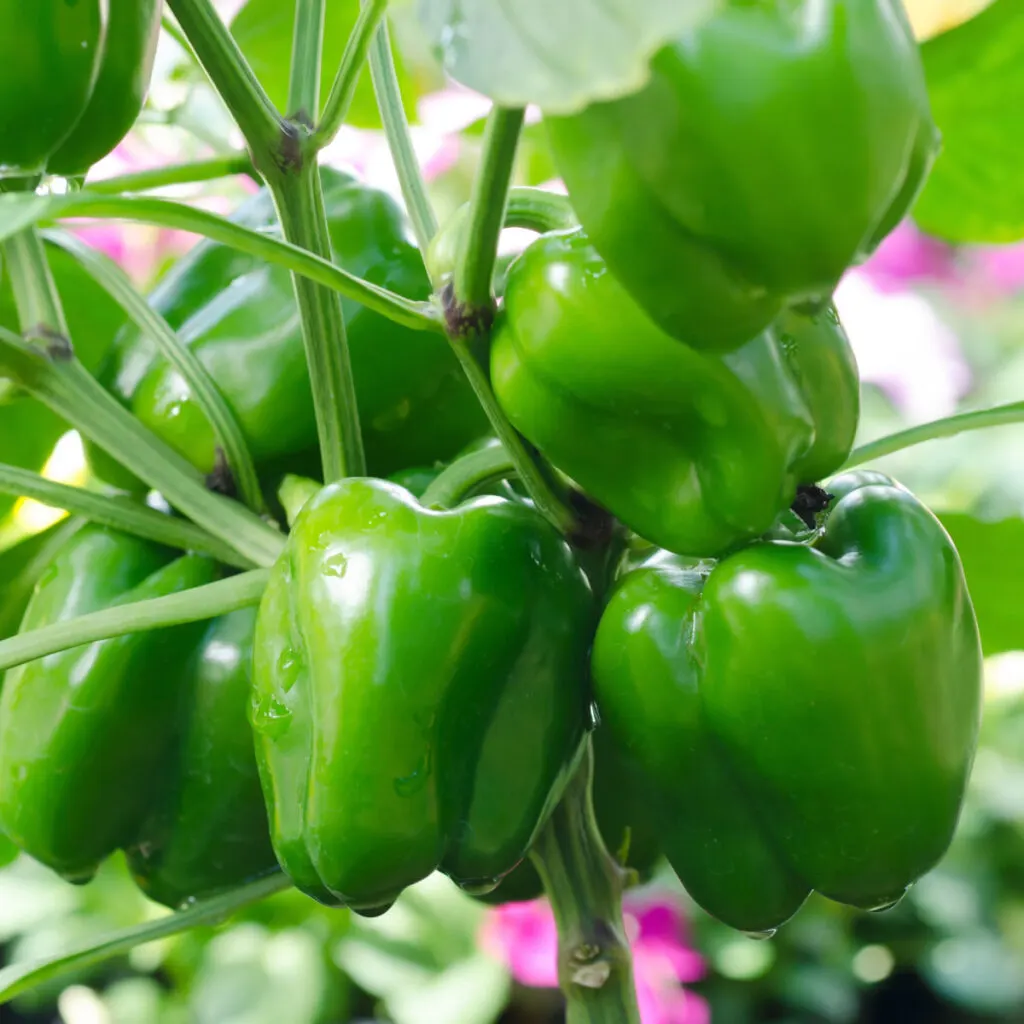Picking the Best Fertilizers for Peppers: Professional Recommendations
Picking the Best Fertilizers for Peppers: Professional Recommendations
Blog Article
Organic Vs. Synthetic Fertilizers: Which Is Best for Supporting Healthy Pepper Plants?
In the realm of nurturing healthy and balanced pepper plants, the choice in between artificial and natural fertilizers stands as a pivotal choice with far-ranging implications. While both options aim to offer necessary nutrients to support plant growth, the subtleties of their effect on the soil, plant health, and the environment spark an argument that echoes throughout the horticulture neighborhood. Comprehending the distinct benefits and potential risks of each fertilizer type is critical for pepper growers seeking to maximize their yields while preserving a lasting and eco-conscious method.
Advantages of Organic Plant Foods
Organic plant foods use a sustainable and environmentally-friendly method to nourishing pepper plants, offering essential nutrients without making use of synthetic chemicals. These all-natural plant foods are acquired from natural sources such as compost, manure, bone dish, and seaweed, promoting dirt health and biodiversity. Unlike synthetic plant foods, natural options launch nutrients gradually, making certain a steady and well balanced supply for pepper plants to grow.
One substantial benefit of organic fertilizers is their capacity to boost dirt structure and water retention. By enhancing soil wellness, organic fertilizers advertise advantageous microbial activity, which aids in nutrient uptake by pepper plants. In addition, natural fertilizers decrease the threat of chemical run-off, protecting water resources from pollution and protecting the environment.
In addition, organic plant foods contribute to lasting dirt fertility by promoting the development of valuable dirt organisms. These organisms assist break down natural issue, launching nutrients in a kind that is conveniently available to pepper plants. best fertilizers for peppers. By cultivating a healthy dirt environment, organic plant foods support sustainable pepper farming methods that benefit both plants and the setting
Downsides of Synthetic Fertilizers
Artificial fertilizers, in comparison to their organic counterparts, posture different downsides when used to nourish pepper plants, affecting both plant health and ecological sustainability. One major downside of synthetic plant foods is their tendency to leach nutrients from the soil promptly. This rapid leaching can cause vitamins and mineral inequalities in the dirt, creating plants to endure from shortages or poisonings. In addition, synthetic plant foods can harm helpful soil microorganisms, such as earthworms and advantageous bacteria, disrupting the dirt community's equilibrium.
Furthermore, the overuse of synthetic fertilizers can add to water contamination. Excess plant foods not taken in by plants can remove into water bodies, causing eutrophication, where algae flowers deplete oxygen degrees in the water, harming aquatic life. Artificial fertilizers are normally obtained from non-renewable resources, such as fossil fuels, contributing to carbon discharges and ecological destruction throughout their manufacturing.
Nutrient Absorption Contrast
When comparing synthetic and organic plant foods in terms of nutrient absorption, natural fertilizers have the benefit of providing an extra well balanced and slow-release resource of nutrients. Organic fertilizers have a selection of macro and trace elements that are not only valuable for the plants however also promote healthy dirt microbial activity, which assists in nutrient uptake.
In addition, organic fertilizers enhance dirt structure and water retention capability, enabling pepper plants to accessibility nutrients more successfully. This enhanced dirt top quality helps with origin growth, making it possible for much better nutrient absorption. Artificial plant foods, although at first enhancing plant growth as a result of their high nutrient focus, may prevent long-term nutrient absorption by derogatory soil wellness over time.
Ecological Effect Factors To Consider

On the other hand, synthetic plant foods, although commonly even more concentrated and right away offered to plants, can have damaging effects on the setting if not used correctly (best fertilizers for peppers). Their production calls for high energy inputs, leading to greenhouse gas emissions and adding to environment modification. The runoff of excess synthetic plant foods can infect water sources, leading to eutrophication discover here and damaging aquatic environments.
Best Fertilizer Practices for Peppers
To achieve this, it is necessary to comply with best fertilizer methods tailored to the details demands of pepper plants. One look at this now critical practice is to carry out a soil test prior to applying any type of fertilizers.
Another vital method is to fertilize pepper plants at the right time. Generally, peppers take advantage of getting fertilizer at growing and after that once again when they begin to blossom. Over-fertilizing can cause vitamins and mineral inequalities and hurt the plants, so it is vital to comply with recommended application prices.
In addition, selecting a well balanced fertilizer with an NPK proportion that fits pepper plants' requirements is fundamental. Organic fertilizers, such as garden compost or manure, can be superb choices as they release nutrients slowly and enhance dirt framework over time. Nonetheless, synthetic plant foods can offer a fast nutrient increase when required. Ultimately, incorporating synthetic and natural fertilizers judiciously can aid nurture healthy and balanced pepper plants while lessening environmental influence.
Final Thought

Organic fertilizers offer an environmentally-friendly and sustainable strategy to nourishing pepper plants, providing important nutrients without the use of artificial chemicals. Unlike synthetic fertilizers, organic choices launch nutrients gradually, guaranteeing a balanced and steady supply for pepper plants to thrive.
Synthetic fertilizers, in comparison to their natural equivalents, posture various disadvantages when used to nurture pepper plants, impacting both useful reference plant health and environmental sustainability. When comparing organic and artificial plant foods in terms of nutrient absorption, natural fertilizers have the advantage of supplying a much more well balanced and slow-release source of nutrients.Moreover, organic plant foods boost soil structure and water retention capacity, permitting pepper plants to accessibility nutrients much more efficiently.
Report this page